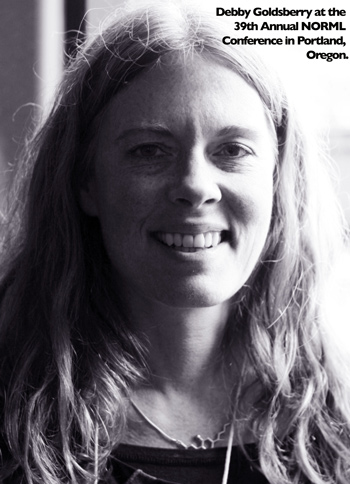
Medical cannabis growing in Oakland, CA – photo by C. Goldstein
It wasn’t easy. When it comes to growing and supplying medical marijuana New Jersey ran the most expensive application process seen to date. Just a handful of groups tried and yesterday The Department of Health and Senior Services announced the first six to gain approval. Candidates had to overcome short deadlines, unclear regulations and significant capitalization all to run a not-for-profit business.
One group wanted to offer medical cannabis at the lowest possible cost, but they were not among those selected. Their innovative plan had the blessing of a local township and would have supplied medical marijuana at an astounding discount.
Freedomisgreen.com spoke with two of the individuals in the Compassion Collective of Camden County who had hoped to serve patients at less than $200 per ounce.
Peter Rosenfeld is the Chairman of the Board and crafted the application. He also provided the nonrefundable portion of the application fee.
How did the municipal officials respond to the ATC concept?
The officials we spoke to in the business development group were interested…they said it was unusual but it was interesting. After we gave them a presentation they thought it would be a well-controlled organization and well regulated by the state. They thought this would fit well into Pennsauken.
We were going to be growing it in a flex manufacturing zone. Our initial concern was if we needed to find a separate zone for the dispensary area. We wanted to have two locations, one for growing and one for dispensing, but I was terribly fearful of the transportation between the two. But we ended up with one location for both.
Did you know any of the individuals in the groups that were selected?
No.
Would you go through the application process again?
Let me tell you the next time around there’s going to be hundreds of applications and the competition is going to be fierce; because I expect the regulations will have been modified to a more sensible model. There are a lot of people waiting in the wings who would like to apply when the situation is more business oriented.
Tell us about the model you wanted to pursue
To offer cannabis to patients at the lowest cost possible while operating as a true non-profit.
How much?
$160 per ounce. But our goal was to lower it over time as the operation expanded… but we had a sliding scale. It was a 4-tier scale.
How did you get the cost down?
A highly efficient hydroponics assembly line, all while keeping labor down due to the automation.
What was the biggest hurdle in the application process?
The short turnaround time. From the time the final RFA rules came out to the due date was six business days: From Feb 3rd to Feb 14th
Then; how to capitalize it. Because I needed start up [investment money] even for the non-profit. I didn’t want any ownership in the ATC from anyone who wanted to make a profit. It all had to be a true business loan.
So you gave over a $20,000 check and will get $18,000 back. How do you feel about the other two grand?
It would have been a nice vacation.
Why do you think you didn’t get awarded a permit?
Probably because our model was too small for what the state was looking for. I based our model on reasonable conditions and I was expecting a rather small number of patients.
Next we spoke with Jeffrey Pollack MD, a physician in Cape May County who was named as the Medical Director on the application.
What do you think of the six centers that got a permit?
South Jersey was left out. There are no facilities in the very southern part of the state like Cape May.
What do you think about the registry that DHSS is requiring for physicians to recommend cannabis?
It severely limits the field of doctors who can recommend marijuana. They make you fill out a form on the DHSS website showing that you have a certification in pain management and addiction control. Classically it has been oncologists who have been most vocal in recommending cannabis to their patient. They are not experts in pain management but they are losing patients to chemotherapy every day. Essentially what this does is create de facto “Marijuana Specialist” doctors in New Jersey.
Grassroots information: www.cmmnj.org
NJ DHSS Medicinal Marijuana Program website
NJ DHSS Press Release March 21, 2011 http://www.state.nj.us/cgi-bin/dhss/njnewsline/view_article.pl?id=3681







